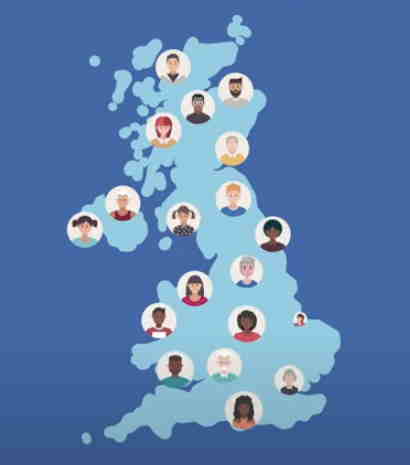High-profile autism genetics project paused amid backlash
By Katharine Sanderson,
Nature
| 09. 27. 2021
A large, UK-based study of genetics and autism spectrum disorder (ASD) has been suspended, following criticism that it failed to properly consult the autism community about the goals of the research. Concerns about the study include fears that its data could potentially be misused by other researchers seeking to ‘cure’ or eradicate ASD.
The Spectrum 10K study is led by Simon Baron-Cohen, director of the Autism Research Centre (ARC) at the University of Cambridge, UK. The £3-million (US$4-million) project, which is funded by the London-based biomedical funding charity Wellcome, is the largest genetic study of ASD in the United Kingdom. It aims to collect DNA samples, together with information on participants’ mental and physical health, from 10,000 autistic people and their families. This will be used to study the genetic and environmental contributions to ASD, and to co-occurring conditions such as epilepsy and gut-health problems. “If we can understand why these co-occurring conditions are more frequent in autistic people, that could open the door to treatment or management of very distressing symptoms,” says Baron-Cohen.
But soon after the study’s high-profile...
Related Articles
By Scott Solomon, The MIT Press Reader | 02.12.2026
Chris Mason is a man in a hurry.
“Sometimes walking from the subway to the lab takes too long, so I’ll start running,” he told me over breakfast at a bistro near his home in Brooklyn on a crisp...
By Katrina Miller, The New York TImes | 02.05.2026
Joseph Yracheta: The Native Biodata Consortium is the first nonprofit data and sample repository within the geographic bounds and legal jurisdiction of an American Indian nation, on the Cheyenne River Sioux Reservation in Eagle Butte, S.D.
NativeBio participated in a ...
By David Jensen, California Stem Cell Report | 02.10.2026
Touchy issues involving accusations that California’s $12 billion gene and stem cell research agency is pushing aside “good science” in favor of new priorities and preferences will be aired again in late March at a public meeting in Sacramento.
The...
By Lauren Hammer Breslow and Vanessa Smith, Bill of Health | 01.28.2026
On Jan. 24, 2026, the New York Times reported that DNA sequences contributed by children and families to support a federal effort to understand adolescent brain development were later co-opted by other researchers and used to publish “race science”...




